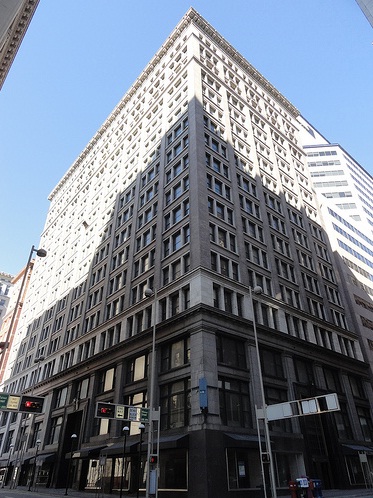
Throughout the United States there are cities that have large vacant buildings and spaces in their central business district that could be utilized in a new efficient way.
In Cincinnati, the old School for the Creative & Performing Arts was recently auctioned off and is slated to be turned into apartments. In the CBD the Bartlett Building, Tower Place Mall, and Terrace Plaza Hotel remain empty or nearly empty and take up about one-fourth of a city block each.
Some think these buildings could be prime residential properties, but they could be that and more. A large vacant building, for example, could be developed into a mixed use community center.
My inspiration actually came from the Up To Speed story on UrbanCincy about a rock climbing gym in St. Louis. I thought to myself that Cincinnati can have something similar and better. Downtown Cincinnati and OTR/Pendleton are becoming destinations for young adults and families for both restaurants and bars.
Turning a large vacant building into a destination point for physical and social activity would add a whole new dimension to the city. The following ideas are what could go collectively into a large empty building:
- Rock Climbing Gym – With the exception of the UC recreation center, all of the rock climbing centers are on the outer edge of the city.
- Paintball Arena – This would be an extremely unique idea for the area as there are minimal indoor paintball facilities and could be a draw for different work or teambuilding groups.
- Exercise Gym/Running Track – The gyms downtown are mostly old and do not offer enough space or have odd floor plans. Renovating a vacant building would allow plenty of space with tall ceilings and large windows that could allow natural light and have a large open space for exercise equipment. A downtown gym with enough space can offer a full menu of classes including Crossfit, spinning, yoga and Zumba, to bring in a broad range of people looking to exercise. A running track a fraction of the size of an outdoor track could be installed for those that do not like treadmill, but want to run indoors.
- Basketball Court/Indoor Soccer – Large office buildings could utilize a few stories to carve out a basketball/indoor soccer surface and hold leagues and practices for area schools and AAU teams.
- Batting Cages/Pitching Tunnels – The basement of a building could be an ideal area for batting cages and pitching tunnels for baseball and softball practice during the cold months. These cages and tunnels are easily moved and can be repositioned to make room for more activities inside the building.
- Golf Simulators/Nets/Putting Green – This would be another unique addition to an urban area with little green space for golf. Workers could play a quick round during their lunch break or warm up before they go out to one of Cincinnati or Hamilton County’s public courses. This would also allow for urban dwellers a space they could walk to for golf lessons.
- Offices – With additional amenities a building would become more attractive to businesses.
- Apartments – To make the building a true mixed use development, apartments could be added as this would be a true “luxury apartment” with a real gym (unlike those found at too many apartment complexes that only have a treadmill and Bowflex and call it a gym) and the ability to walk to some of the most popular dining destinations in the city.
To compare a potential community center downtown with other recreational centers, the Recreation & Physical Activity Center at Ohio State University has a total of 570,000 square feet of space including the pools, while 25,000 square feet is fitness space for weights and treadmills. By contrast, the Campus Recreation Center at the University of Cincinnati has 202,000 square feet including its pools.
The options of what to include in these large, empty spaces are endless, but a truly mixed use development would be better suited for the community than simply offices, apartments, and art studio space. The gyms downtown are old and do not offer enough space, or have odd floor plans. Rock climbing and paintball would draw younger crowds, and the students in the area could benefit from having additional practice facilities.
A neighborhood needs young families as well as young professionals. This would be a good start to try and draw them to the core and keep them there.
Brian Valerio grew up in Cincinnati’s College Hill neighborhood and graduated from St. Xavier High School and Ohio State University where he studied finance and real estate. He currently works at Fifth Third Bank and lives downtown. Those interested in sharing their thoughts can submit guest editorials to UrbanCincy by emailing urbancincy@gmail.com. Please include a short bio with any submissions.
